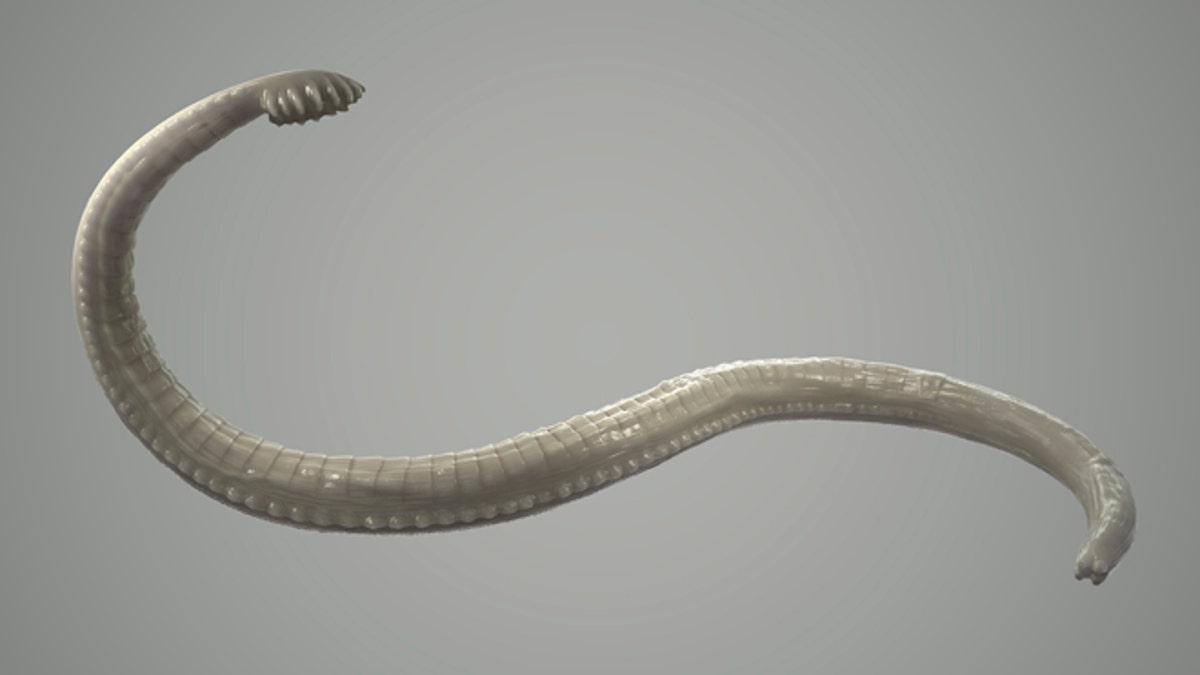
A tapeworm is a parasite that you can get if you eat the infected and undercooked meat of an animal. (iStock)
Dear Dr. Manny,
I ate something on a trip to Brazil and now I’ve been having terrible stomach issues. I’ve read about people who have had tapeworms and I don’t know if I have one. How do you know if you have a tapeworm? What do the eggs look like? How do you diagnose a tapeworm? Will the worm die on its own? Is it common to get a tapeworm?
Thanks for your question.
A tapeworm is a parasite that you can get if you eat the infected and undercooked meat of an animal. So you could have gotten a tapeworm by eating something. It’s hard to know if you have a tapeworm on your own, but the most common symptoms are abdominal pain, nausea, diarrhea, unexplained weight loss, dizziness, trouble sleeping, and jaundice.
WHICH MEAT IS HEALTHIEST TO EAT?
When you go to the bathroom, look at your stools. If you see white pieces in there, you might have a tapeworm infection.
Your appetite might change. If you’re eating a lot more but weighing a lot less, then it might be a tapeworm.
Some kinds of tapeworms cause anemia symptoms because they eat all the Vitamin B12. This is a problem because your body needs that vitamin in order to make red blood cells. If you have no sense of touch, trouble walking, and feel stiff, that’s a sign of anemia. Paired with the other symptoms, you might just have a tapeworm.
Tapeworm eggs look like little grains of rice or seeds. If they hatch, the larvae can sometimes crawl up your intestines and live there. This causes cold-like symptoms, such as coughing.
WHY IS YOUR STOMACH MAKING NOISES?
In many situations, however, most people don’t even know they have tapeworms. There can be almost no symptoms.
When doctors diagnose tapeworms, they do it via a stool test. They check the stool for worm parts, or proglottids, and eggs. The patient collects a sample and sends it to the lab for testing. Technicians view the sample through a microscope to see if they can find proglottids or eggs. The Centers for Disease Control mandates that three different samples be tested.
Tapeworms must be treated because they do not go away on their own. They reproduce with eggs and grow in the human intestine. Some tapeworms grow to be 25 feet long inside their hosts. The larvae travel to other parts of the body and infect parts of the tissue, in the brain and in other areas. These larvae form cysts that can cause damage.
Tapeworms are not very common in the U.S. The laws and inspection practices have ensured that infected meat is not sold.
CLICK HERE TO GET THE FOX NEWS APP
If you think you have a tapeworm, you need to talk to your doctor about getting tested.








































